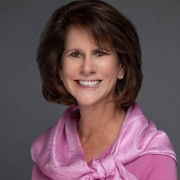What Every Parent Should Know about Eating Disorders
This blog post represents the author’s views and should not be interpreted as professional/medical advice or endorsed by NEDA.
By Martha Watson
My daughter, Elizabeth, was diagnosed with Anorexia Nervosa at age 11, though it’s likely her eating disorder started much earlier and went undetected for years.
She had some pre-existing slight anxiety issues, and possible body image issues that were likely associated with normal things like growth spurts. All of that, we later realized, grew worse when she was extremely homesick at a summer sleepaway camp and used restrictive eating to manage her anxieties.
We had no idea of the roller coaster ride we were getting on when she was diagnosed, but we dove in. We engaged a multi-disciplinary outpatient treatment team including different specialized psychologists for her, and for us as parents, along with a dietician, and an adolescent medicine physician.
Acting quickly is vital and I would recommend that to any parent.This disease turned our family upside down.We battled the insurance company constantly for coverage for her treatment. One or both parents supported her during long out-of-state hospitalizations, jeopardizing our jobs and the family’s financial security.
Elizabeth dreamed of changing the impact of eating disorders on society. Elizabeth was frustrated by the standard and grossly inadequate protocols for treatment of eating disorders. She aspired to become a psychiatrist, so she could impact the research into causes of eating disorders and develop new treatments and perhaps even a cure.
Elizabeth bravely fought her eating disorder for nearly half of her life. She lost her courageous battle eight years ago at age 21, ironically during National Eating Disorders Awareness Week.. This is an annual campaign to educate the public about the realities of eating disorders and to provide hope, support and visibility to individuals and families affected by eating disorders.
Since Elizabeth’s death, I have dedicated myself to honoring her dreams. I’ve become an active advocate in the eating disorders space. I have lobbied for Pennsylvania state legislation and national legislation with the Eating Disorders Coalition, and I’ll return to Washington, D.C. to continue this work.
I have been a top national individual fundraiser at the National Eating Disorders Association (NEDA) annual walk. These funds will enable further research and provide support to those seeking treatment for and information about eating disorders. I have also advised and encouraged several families on their journeys through eating disorders. Most recently, I was named to NEDA’s board of directors.
When Elizabeth passed away, she already knew four young people who had died from eating disorders. That is much too high a toll for society to bear. We need to continue to raise awareness and understanding, and ensure that eating disorders are identified early and referred to treatment quickly to save lives. I firmly believe that recovery is possible, as I have seen some of Elizabeth’s friends and others I have helped succeed in recovery.
My husband Glenn and I were lucky to have Elizabeth in our lives for 21 years. I know she walks alongside me in all the advocacy I do and that I have already succeeded in many ways. But there is still much I want to accomplish. If you suspect your child has an eating disorder, please trust your parental instincts and immediately seek help. Early intervention is key and recovery is possible.
Martha has been an active advocate in the eating disorders space since 2016, when she lost her daughter, Elizabeth Grace, to Anorexia Nervosa after a 10 year battle. She has been a top individual fundraiser for the NEDA Walks every year since 2020, participated in national and state legislative advocacy with the Eating Disorders Coalition since 2018, and supported many families on their journeys through an eating disorder. She recently joined NEDA’s Board of Directors. Martha is passionate about raising public awareness of eating disorders as well as reducing the stigma associated with mental illness in general and she cares deeply about children and their medical experiences. She is proud to do this work in Elizabeth’s honor and memory.
Professionally, Martha has over 30 years of experience as a healthcare consultant, currently serving as a Strategy Consultant for Highmark Health, working on their key strategies to reinvent healthcare. She holds a degree in actuarial mathematics from the University of Michigan. She resides in Pittsburgh, PA, with her husband, Glenn.
This blog post was originally published on https://www.kidsburgh.org. To read the full version go here.




